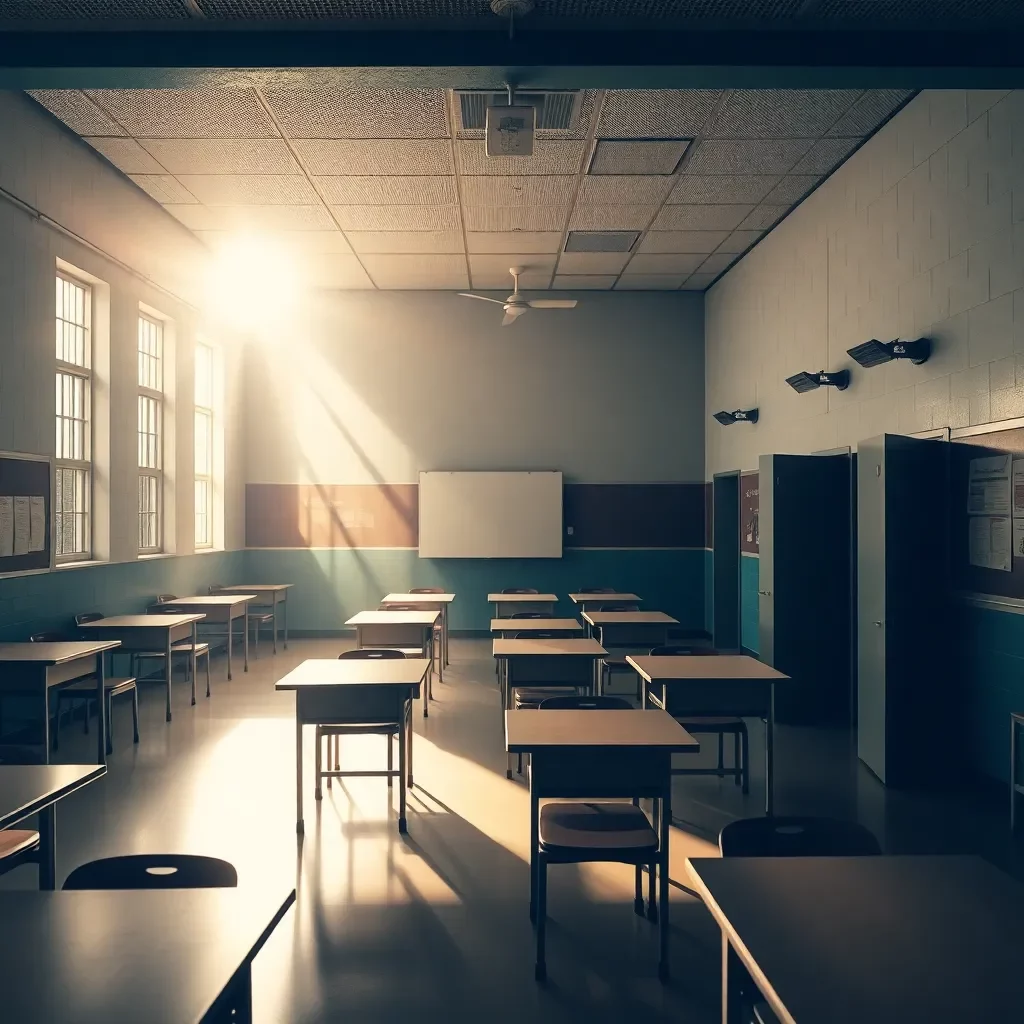South Carolina’s Troubling Juvenile Justice System Faces Ongoing Struggles
In the heart of South Carolina, challenges are piling up for the Department of Juvenile Justice (DJJ). A recent report from an independent oversight agency reveals that the organization is still grappling with significant issues. These struggles follow a series of harsh audits that have exposed the serious shortcomings within the DJJ.
The Backstory
The report, released by the Legislative Audit Council in early December, follows up on a detailed examination from 2021. That initial audit had given an alarming outlook, highlighting major failures that compromised the safety of both children and staff within the system. Out of the 101 recommendations made back then, a little over half have been addressed, leaving a considerable gap in the department’s ability to function effectively. This is a troubling setback for an agency that has been trying to improve under new leadership.
Under Pressure: Funding and Staffing Issues
One of the primary difficulties lies in funding. With the passage of the Raise the Age law, the responsibility of housing juvenile offenders shifted, raising the age limit from 17 to 18 without securing the necessary funds. This has left DJJ in a tight spot, struggling to keep up with increased demands. According to State Senator Tameika Isaac Devine from Richland, the agency is “at its breaking point.” The situation is further complicated by ongoing issues of overcrowding and a severe lack of staff.
Staggering Staff Shortages
It’s hard to ignore the staff shortage highlighted by the audit. Between October 2023 and February 2024, the vacancy rate for juvenile corrections officers surged from 15% to a staggering 39%. Alarmingly, of the 118 officers hired and trained in 2023, nearly 79% had departed by August, with an average tenure of only three months. Auditors also noted that necessary medical care wasn’t being provided to juveniles because of an inadequate transportation plan—a serious red flag!
Timely Payments and Policy Changes
The DJJ has had trouble paying its bills on time, an issue that has led some medical providers to stop treating juvenile inmates. Many of their policies seem to be caught in a state of flux as well. Earlier this year, DJJ chose to end its participation in a valuable data collection program from the Department of Justice. Having a data collection process helps track the performance and safety of the facilities, but as it stands, the agency has not replaced this program with a new one.
Safety and Psychological Concerns
Another thorny issue is the mental health treatment protocols, which are under review, in addition to 20 other policies mandated by a settlement with the Justice Department, including guidelines around the use of force and isolation of juveniles. Of the nine security-related policies, only five have been finalized, leaving a gap in operational requirements.
Troubling Incidents
The DJJ has been under scrutiny for serious incidents, including a tragic case where a 16-year-old boy died after attempting to take his own life in a facility. High-profile issues, such as a girl sneaking a loaded gun into one of the facilities and staff arrests for inappropriate behavior, have only added to the agency’s woes.
A Ray of Hope for Change?
Despite all these challenges, there are glimmers of progress. For instance, the agency has invested $7 million in installing over 1,197 cameras in five facilities. According to Senator Devine, DJJ’s Director, Eden Hendricks, is working hard to improve the situation but is continuously hindered by budget constraints.
The Path Forward
Looking ahead, Senator Devine has proposed a new bill aimed at tackling the issues plaguing the DJJ. Named the Juvenile Justice Reform Act, this bipartisan effort is focused on securing essential funding and reducing overcrowding by addressing how juveniles are treated for issues like truancy or “incorrigibility,” which are not considered crimes for adults.
With the stakes this high, it’s crucial that South Carolina addresses the severe challenges within its juvenile justice system. As more children find themselves affected, it’s clear that significant reforms are desperately needed to pave a healthier path forward.







